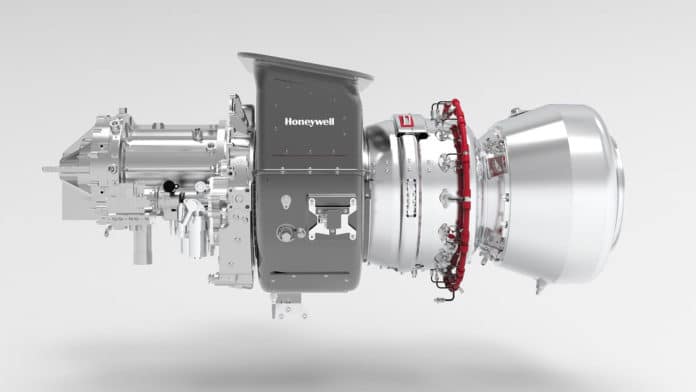Electric and hybrid aircrafts are seen today as the foundation of the aviation of the future. It is believed that such devices will help meet the growing demand for air travel while reducing the impact of aviation on global climate change.
The American company has announced the development of a new, more-powerful turbogenerator designed for use on air taxis, cargo drones, and hybrid-electric commercial aircraft. At 280 pounds (127 kg), the Honeywell 1-Megawatt generator weighs about the same as a motor scooter but delivers enough energy to power an entire neighborhood block.
Honeywell’s generator will be combined with the Honeywell HGT1700 auxiliary power unit, currently flown on every Airbus A350 XWB, to form a turbogenerator 2.5 times more powerful than the version the company unveiled in 2019. The turbogenerator will be able to run on aviation biofuel as well as on conventional jet fuel and diesel. According to the developers, the device can be used to operate high-power electric motors or charge batteries and can satisfy missions from heavy-lift cargo drones to air taxis or commuter aircraft.
“There is an inherent need for electric and hybrid-electric power as the urban air mobility segment takes shape and unmanned aerial vehicles enter service,” said Stephane Fymat, vice president and general manager for Unmanned Aerial Systems and Urban Air Mobility at Honeywell Aerospace. “Our turbogenerators provide a safe, lightweight package to serve these burgeoning segments, and we’re designing our solutions to meet the unique needs of customers developing aerial vehicles of the future.“
The first demonstration of Honeywell’s turbogenerator system will occur in the third quarter of 2021, with ongoing development and qualification to follow.
In December, Honeywell signed a memorandum of understanding with British startup Faradair Aerospace to collaborate on systems and a turbogenerator unit that will run on sustainable aviation fuel to power Faradair’s Bio-Electric Hybrid Aircraft (BEHA). By 2030, the startup plans to bring back large-scale aircraft production to the UK and deliver 300 home-designed, sustainable aircraft for regional air mobility and special missions.
